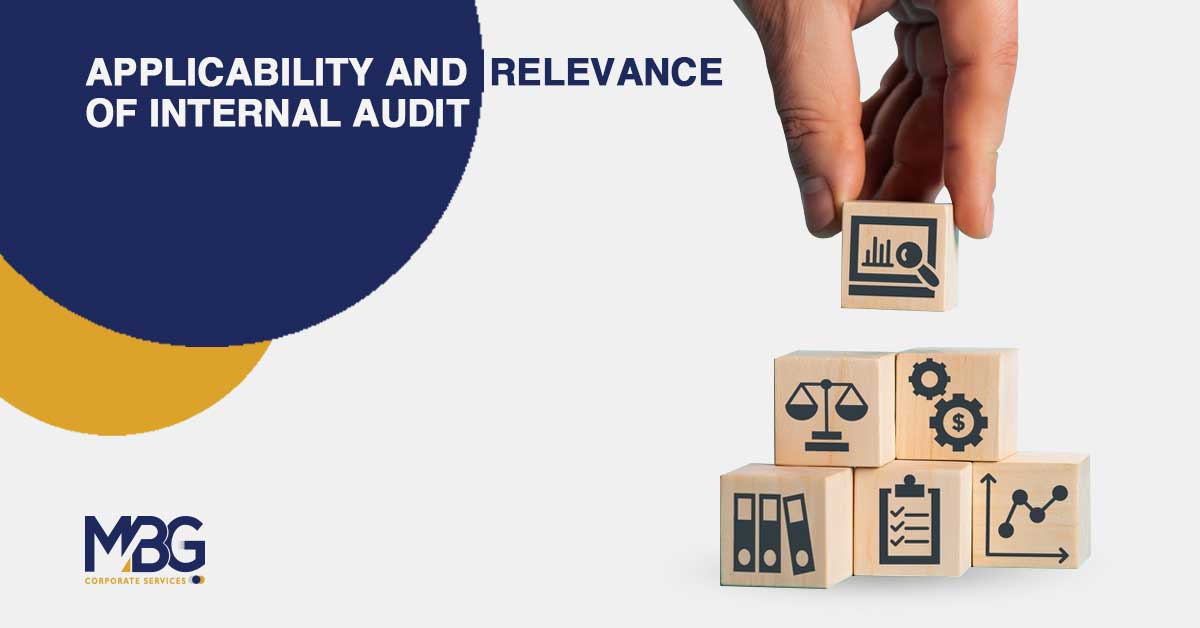Applicability and Relevance of Internal Audit in Current Scenario

The mission of internal audit is: “To enhance and protect organizational value by providing risk-based and objective assurance, advice, and insight.”
Internal auditors follow a widely accepted framework for preparing effective audit findings, known as the 5-C’s: Condition, Criteria, Cause, Consequence, and Corrective Action. The internal audit (IA) function focuses on assessing business-process risks and controls, but in today’s complex environment, auditors are increasingly expected to deliver a broader range of services, often on short notice. They also play a critical role in governance, risk appetite, and fostering a risk-aware culture. Learn more in our Internal Audit Primer.
When is Internal Audit Required?
- Increase in size and complexity of business operations.
- Compliance with statutory and regulatory requirements.
- Large-scale use of information technology.
- Strengthening internal controls for risk management.
- Establishing sound corporate governance and adopting industry best practices.
Key Functions of an Internal Auditor
- Review operations, policies, and procedures to assist management in establishing improved controls.
- Certify that risks are managed within limits defined by the Board of Directors.
- Continuously evaluate the effectiveness of internal controls and recommend improvements.
- Support management in detecting and preventing fraud.
Statutory Requirements and Applicability
According to SEBI Clause 49 of the Listing Agreement, listed companies must ensure that:
- Weaknesses in internal controls are reported.
- The internal audit function is operational.
- Suspected frauds or irregularities resulting from internal control failures are identified and reported.
- The CEO and CFO certify the effectiveness of internal controls and actions taken to address deficiencies.
As per Section 138 of the Companies Act, 2013, every listed company and certain unlisted companies meeting financial thresholds are required to appoint an internal auditor. Auditors may be Chartered Accountants, Cost Accountants, or other professionals designated by the Board, conducting audits across departments at regular intervals.
Applicability of Internal Audit
- Every listed company.
- Every unlisted public company meeting any of the following during the preceding financial year:
- Turnover of INR 200 crore or more.
- Paid-up share capital of INR 50 crore or more.
- Outstanding loans/borrowings from banks or PFIs exceeding INR 100 crore at any point.
- Outstanding deposits of INR 25 crore or more at any point.
- Every private company meeting any of the above thresholds.
- Authorized management personnel with authority to investigate organizational operations.
Effect of CARO 2020 on Internal Audit
Under Clause XIV of CARO 2020, external auditors must consider:
- Whether the company has an internal audit system proportional to its size and nature of business.
- Whether the internal auditors’ reports were reviewed by the statutory auditor during the period under audit.
Responsibilities of an Internal Auditor
- Maintain independence and avoid involvement in executive functions.
- Identify and report risks to management.
- Evaluate operations and maintain adequate internal controls to safeguard assets.
- Assess organizational policies and suggest improvements if required.
- Monitor events and occurrences that may impact business performance.
- Refrain from making operational decisions that could compromise audit independence.
Internal Audit Report
The auditor issues reports based on professional judgment and consultation with the auditee. Key elements include:
- Conclusions derived from audit procedures and evidence analysis.
- Compliance with Standards on Internal Audit, if applicable.
- Customized report format based on professional judgment and stakeholder preferences.
- Maintenance of draft and final reports for compliance and reference.
Characteristics of Internal Audit
- Independent management function providing unbiased, impartial reports.
- Evaluates existing internal controls and standard operating procedures.
- Promotes improved internal control structures and corporate governance.
- Identifies risks and opportunities, designing controls to manage both.
- Covers operational and financial aspects within the scope defined by the organization.
- Reports to management or audit committee while remaining within the organization.
- Addresses key business risks to help achieve organizational objectives.
Objectives of Internal Audit
- Maintain adequate control over all business activities.
- Verify authority and accuracy of transactions, including purchases, retirements, and asset disposal.
- Identify organizational weaknesses and recommend corrective actions.
- Examine asset valuation, verification, and possession under proper authority.
- Detect errors and fraud, helping management maintain accurate accounting records.
- Evaluate accounting policies and suggest improvements for effective audit planning.
- Conduct special investigations to assess management function effectiveness.
Conclusion
Internal audits ensure compliance with laws and regulations, provide assurance against risks such as fraud or misuse of power, and offer management an unbiased evaluation of operational and financial processes. Engaging professional Internal Audit Services helps organizations enhance both operational efficiency and financial performance.
Also read: 5-C’s Internal Audit Guide
Contact us:
Email: communications@mbgcorp.com
Phone: +91 88601-90008
Article contributed by: Risk & Transaction Advisory Services






